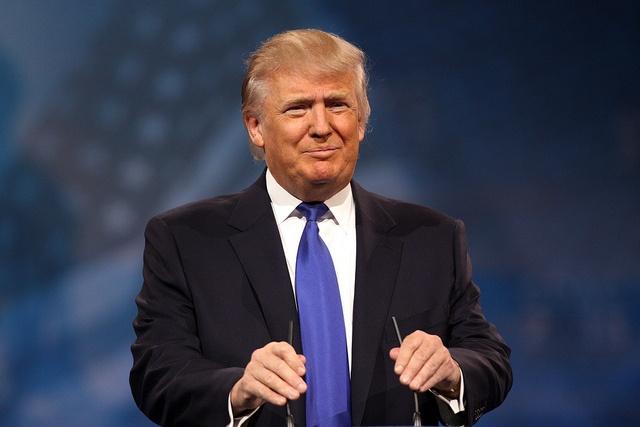
Republicans will meet this week in Cleveland to nominate Donald Trump as their candidate for president of the United States. Many predict these 72 hours will be part-carnival, part-funeral and part-reality show. But one constituency is notably absent in the chatter: Silicon Valley leaders. [Ed note: except libertarian and Trump delegate Peter Thiel. We'll have more on his role at the upcoming RNC tomorrow]
Silicon Valley's aversion to Trump can in part be explained by the South Bay’s politics. Once a bastion of moderate Republicans -- including William Hewlett, David Packard and Leo McCloskey -- for years the South Bay had an economy more reliant on defense contractors and their suppliers than the tech companies of today. Packard, in fact, briefly served as an undersecretary of defense under former President Richard Nixon. Then, the post-Cold War layoffs started. And meanwhile, the Republican party turned even more sharply rightward during the 1990s. Moderate and liberal Democrats became entrenched in the region. And many of the Silicon Valley residents who vote for them work at technology firms at which executives tend to wield more of a libertarian streak.
But that streak, in part, involves little concern over their employees’ or neighbors’ personal lives. Many of these executives also seek a more open and seamless immigration policy that allows more talent to work in the U.S., so these firms can stay relevant in a highly competitive market. They also blanch at the thought of any interference from what is seen as the invasive lackeys who work within government bureaus such as the National Security Agency.
Unlike their counterparts in the American energy or food industry, many leaders within the tech industry have the reputation of wanting to be free of the federal government, not embedded within it. Hence, the notion of the government demanding personal data or undertaking surveillance led some Silicon Valley types to flirt with politicians such as Sen. Paul Rand, as discussed a few years ago on Motherboard.
Trump’s rhetoric has therefore spooked those who believe there are close ties between immigration and innovation. Add his contempt for the tech industry and his threats to companies such as Apple if they do not comply with directives ordered by a potential Trump administration, and you have what the Los Angeles Times described as the man who did the unthinkable: unite Silicon Valley.
Tech leaders may not be in love with Hillary Clinton, but they remember the industry’s emergence and the wealth it generated during her husband’s administration. Hence the political donations streaming out of Santa Clara County have by and large flowed into her campaign coffers. It is better to have someone who will keep her distance from the barn than deal with the alternative, who is hell bent on burning it to the ground along with anyone stuck inside.
Of course, there are some tech company employees who will vote for Trump. But it looks like the election results in November will be similar to 2012. That year, Barack Obama won 70 percent of the vote — and Silicon Valley was one of the few areas where the percentage of those who voted for him actually increased from 2008.
Not that industry leaders are taking any chances considering how volatile this campaign season has been. In an open letter published last week, over 100 executives, CEOs and founders attacked Trump and his campaign for what they say is divisiveness, a hostility to the technology sector and the threats of “shutting down” portions of the Internet.
Critics noted that names attached to the likes of Apple, Facebook and Google are conspicuously absent, a surprise considering those firms have been the target of Trump’s invective over the past year. Of course, those companies are behind the tools Trump uses to run his campaign, whether they are tweets from an iPhone, images taken from the Internet or messages broadcast to the faithful.
Nevertheless, the reality is that most Silicon Valley workers do not work within the region’s largest firms. And while an occasional lone warrior such as Peter Thiel is vocally supportive of Trump, Silicon Valley has made it clear that this candidate is more of a dark knight who will extinguish years of progress than a man who can “make America great again.”
Image credit: Gage Skidmore/Flickr

Leon Kaye has written for 3p since 2010 and become executive editor in 2018. His previous work includes writing for the Guardian as well as other online and print publications. In addition, he's worked in sales executive roles within technology and financial research companies, as well as for a public relations firm, for which he consulted with one of the globe’s leading sustainability initiatives. Currently living in Central California, he’s traveled to 70-plus countries and has lived and worked in South Korea, the United Arab Emirates and Uruguay.
Leon’s an alum of Fresno State, the University of Maryland, Baltimore County and the University of Southern California's Marshall Business School. He enjoys traveling abroad as well as exploring California’s Central Coast and the Sierra Nevadas.














